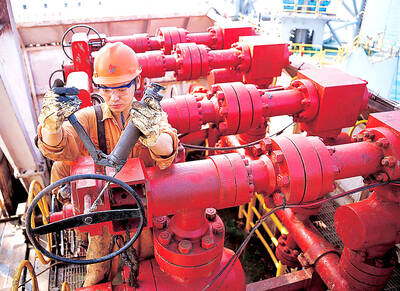The Ministry of Education (MOE) yesterday unveiled its plan to fully subsidize the kindergarten tuition of some of the nation’s five-year-old children.
Under the subsidy program, five-year-olds living in the nation’s Penghu, Kinmen and Matsu and Aboriginal townships whose annual household income does not exceed NT$1.1 million (US$34,300) are eligible for the tuition break if they choose to attend public kindergarten.
Those who choose to attend private kindergartens that are on the ministry’s list of cooperative schools will receive a NT$30,000 tuition subsidy every year.
Additionally, children from families with an annual income under NT$700,000 will receive other schooling-related stipends ranging between NT$10,000 and NT$30,000 every year, the ministry said.
The benefit will be introduced for the next school year that begins next month, said director of the ministry’s Department of Elementary Education Yang Chang-yu (楊昌裕), adding that only children with Taiwanese nationality can enjoy the subsidy.
The ministry plans to have the benefit extended to all five-year-olds in the nation who have an annual household income under NT$1.1 million for the 2011-2012 academic year, Yang said.
While the ministry hopes the tuition break will apply to every five-year-old child in the nation in the future, Yang said no clear timetable has been proposed because of concerns over government finances.
Taiwanese children usually begin attending elementary school at the age of six.
The ministry’s information showed that children going to public kindergarten usually have to pay NT$14,000 in tuition every year and about NT$10,000 in extra fees every semester. For those who go to private kindergarten, the total charge could reach NT$50,000 to NT$70,000 per year, the information showed.
Yang said about 53 percent of the nation’s five-year-olds, or 110,000 kids, are expected to benefit from the plan in the next school year and the figure may rise to about 75 percent, or 154,500, in the next school year.
The tuition break is expected to cost the government NT$4.8 billion for the next academic year and NT$6 billion for the 2011-2012 academic year, he added.
Minister of Education Wu Ching-chi (吳清基) said the scheme was proposed to halt the nation’s declining birth rate and to lessen the financial burden of young parents.

The Chinese military has built landing bridge ships designed to expand its amphibious options for a potential assault on Taiwan, but their combat effectiveness is limited due to their high vulnerability, a defense expert said in an analysis published on Monday. Shen Ming-shih (沈明室), a research fellow at the Institute for National Defense and Security Research, said that the deployment of such vessels as part of the Chinese People’s Liberation Army (PLA) Navy’s East Sea Fleet signals a strong focus on Taiwan. However, the ships are highly vulnerable to precision strikes, which means they could be destroyed before they achieve their intended

About 4.2 million tourist arrivals were recorded in the first half of this year, a 10 percent increase from the same period last year, the Tourism Administration said yesterday. The growth continues to be consistent, with the fourth quarter of this year expected to be the peak in Taiwan, the agency said, adding that it plans to promote Taiwan overseas via partnerships and major events. From January to June, 9.14 million international departures were recorded from Taiwan, an 11 percent increase from the same period last year, with 3.3 million headed for Japan, 1.52 million for China and 832,962 to South Korea,

SOVEREIGNTY: The rigs show that Beijing ‘rejects Taiwan’s jurisdiction’ by building in areas where Taipei demands permission to build or alter installations Chinese oil rigs have been sighted just 26 nautical miles (42km), from Taiwan’s exclusive economic zone (EEZ) near Pratas Island (Dongsha Island, 東沙島), posing a threat to Taiwan’s sovereignty if left unchallenged, a brief published by the Jamestown Foundation on Tuesday said. Pratas Island, 444km from Kaohsiung, is northeast of the South China Sea and houses a Taiwanese garrison. The brief, titled “Rigging the Game: PRC Oil Structures Encroach on Taiwan’s Pratas Island” — referring to the People’s Republic of China — analyzed photographs and said that Beijing’s tools to pressure Taiwan now include oil rigs. “Oil rigs now constitute part of Beijing’s

The Taiwan Experience Education Program (TEEP) has funded short-term internships in Taiwan for more than 4,500 young people from more than 40 countries since 2015, with the goal of attracting and retaining international talent, the Ministry of Education said yesterday. Fifty-five colleges launched 514 projects this year, including in fields such as semiconductors, artificial intelligence, medicine and biotechnology, green energy, and sustainability, it said. The program provides research and practical internships in Taiwan for two to six months, and offers cultural exchange and networking opportunities, the ministry said. For example, National Formosa University’s Embedded System and Autopilot Laboratory developed two solar-powered drones in